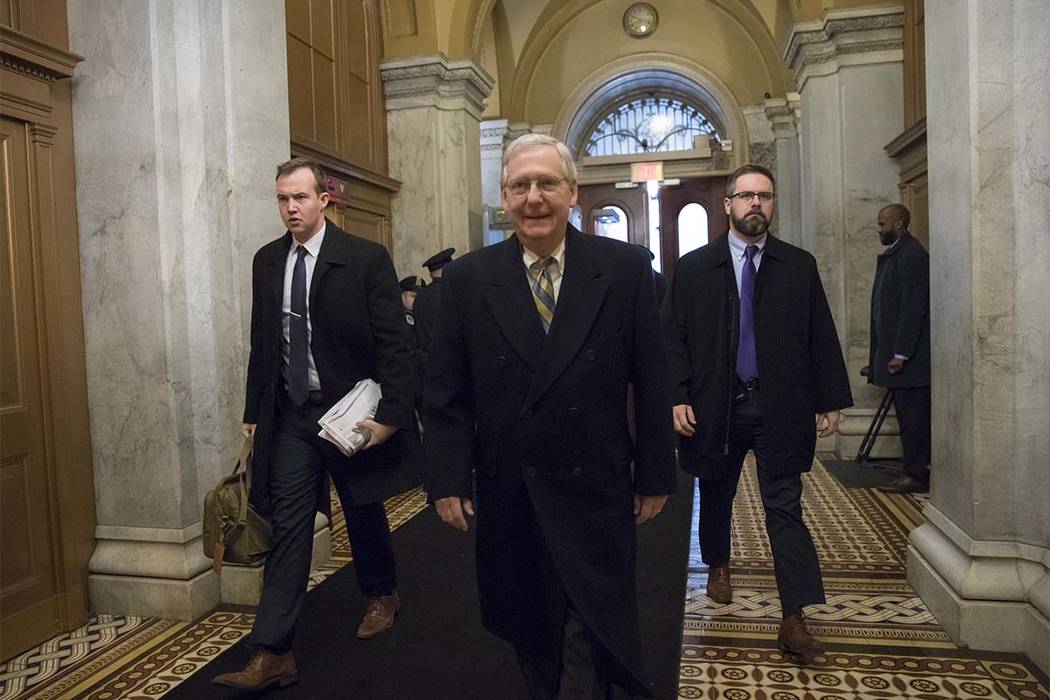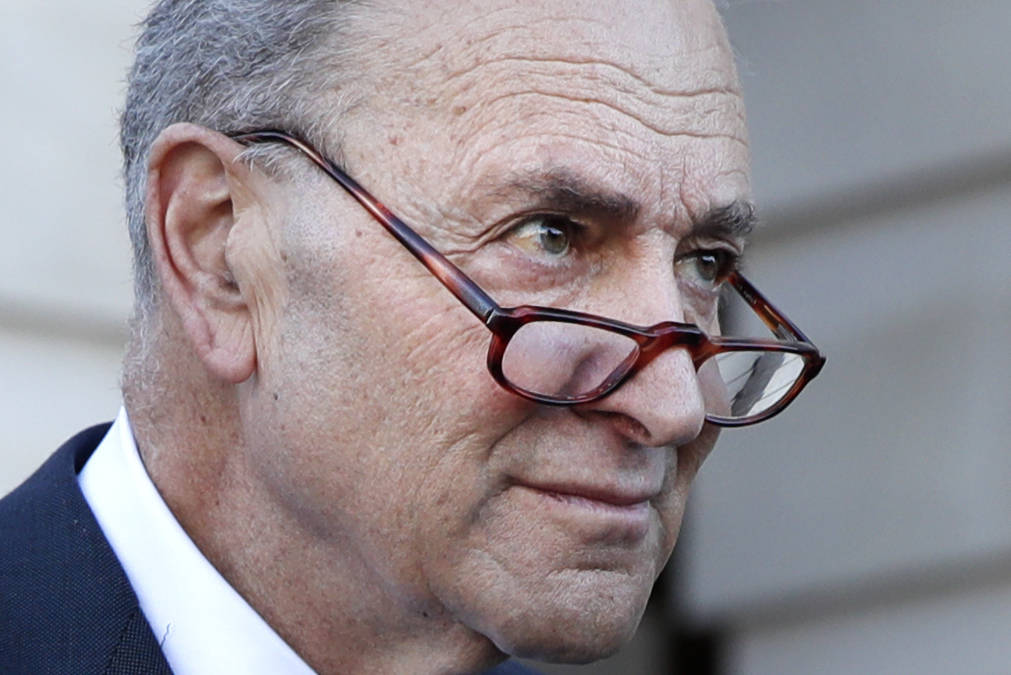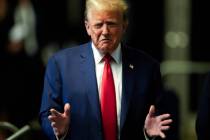Last-minute efforts fail to stop government shutdown
WASHINGTON — Despite last-minute efforts to forge a compromise, Senate Democrats blocked a stopgap spending bill Friday that punctuated President Donald Trump’s first year in office with a government shutdown.
The president canceled a trip to Florida and Senate Republicans and Democrats vowed to continue to negotiate after they failed to come to terms on the spending legislation and a measure to protect undocumented immigrants known as Dreamers.
Aware of the political fallout in an election year, both sides engaged in finger pointing even as Trump met with Senate Minority Leader Charles Schumer, D-N.Y., at the White House to stave off a shutdown just hours ahead of the midnight deadline.
Minutes before the vote, Trump tweeted that “Dems want a Shutdown in order to diminish the great success of the Tax Cuts and what they are doing for our booming economy.”
Schumer said congressional Republicans were in chaos and disarray, and unable to negotiate an end to the stalemate.
“The American people know that this party is not capable of governing,” Schumer said.
The Senate voted 50-49. Senate Majority Leader Mitch McConnell, R-Ky., accused Democrats of holding the American people hostage over an immigration issue that could be resolved in March.
But Republicans, too, joined Democrats in denying the votes need to advance the bill to the Senate floor for a vote on final passage.
The House passed the bill Thursday on a 230-197 vote. The Nevada congressional delegation voted along party lines.
But the stopgap spending bill met firmer resistance in the Senate, where Republicans hold a thin 51-49 majority and need 60 votes to end debate and vote on the bill.
Democrats announced Thursday that they had the votes to filibuster, or block the bill, and two Republicans, Sen. Lindsey Graham, R-S.C., and Sen. Rand Paul, R-Ky., said they would also vote against the bill.
Nevada senators were split along party lines.
Sen. Dean Heller, R-Nev., who faces re-election this year, echoed GOP leadership on border security and favored some measures included in the bill that delayed implementation of a handful of taxes in the Affordable Care Act.
Heller said the bill would not only keep the government open, it “supports our troops, it also helps Nevada’s most vulnerable and its workers.”
The bill also would have delayed the implementation of the “Cadillac tax” under Obamacare, an excise tax on insurance plans that businesses and labor unions oppose. Heller had introduced bipartisan legislation to block that tax.
Heller also cited reauthorization of the Children’s Health Insurance Program, which provides care for 9 million children nationwide, including 40,000 in Nevada. The entire Nevada congressional delegation has urged congressional leaders to reauthorize the program.
Democrats accused Republican leaders of tying the CHIP reauthorization to the short-term spending bill as a carrot to peel off Democratic support.
Democrats have pushed Republicans and the administration on a deal for Dreamers, the roughly 800,000 undocumented immigrants who were brought into this country illegally.
The Dreamers were shielded from deportation under the Deferred Action for Childhood Arrivals (DACA) program, which Trump announced last year he would end while giving Congress until March to come up with a legislative remedy.
In exchange, Trump and Republicans want increased funding for border security, including a wall, an end to the diversity visa lottery and reductions in chain migration.
Sen. Catherine Cortez Masto, D-Nev., said she did not want a shutdown and was hopeful a deal could be brokered on DACA and other issues.
But she blamed Trump for impasse, citing a supposed deal last year that fell through with more demands from the White House on immigration reforms and the elimination of protected status for immigrants who have been in the country for years, legally.
“They are picking and choosing who wins,” Cortez Masto said. “They are playing with people’s lives, and it’s wrong.”
On the CHIP reauthorization, Cortez Masto said Republicans tacked it onto the stopgap spending bill “to benefit their own politics.” She called it “outrageous.”
Like other lawmakers on both sides of the political aisle, Cortez Masto said she would stay in Washington and continue working until a deal is reached to reopen the government.
Trump administration officials said they hoped that the shutdown would be ended by Monday, when most federal offices are scheduled to reopen. But the House adjourned Friday, meaning members would have to return to Washington to vote on any new deal crafted by the Senate.
The shutdown would be the first since 2013, when Republicans closed the government in an effort to repeal Obamacare. The shutdown lasted 16 days, and Republicans were blamed for the closure that cost $1.5 billion a day.
Republicans were wary of the political consequences of a shutdown during a midterm election year.
Democrats were, too, with more vulnerable senators seeking re-election in states that Trump won in 2016. Before the vote, Sen. Heidi Heitkamp, D-N.D., said she would vote in favor of the short-term spending bill.
White House Budget Director Mick Mulvaney called the closure the “Schumer Shutdown,” and Marc Short, the White House legislative affairs director, said: “It seems like they are just hellbent on getting to a shutdown.”
Republicans control the White House, Senate and House, and Democrats underscored the GOP’s hold on power in Washington as they pointed at Trump and McConnell for failing to negotiate in good faith on budget issues.
Sen. Robert Menendez, D-N.J., said he refused to vote for a fourth stopgap spending bill that would expire in four weeks and leave both sides in the same positions on issues where there are disagreements.
Contact Gary Martin at gmartin@reviewjournal.com or 202-662-7390. Follow @garymartindc on Twitter.





























